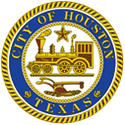 > Mayor’s Office of Gang Prevention and Intervention > Gangs 101
> Mayor’s Office of Gang Prevention and Intervention > Gangs 101
Mayor’s Office of Gang Prevention and Intervention
Gangs 101

Gangs form for many different reasons including profit from criminal activity, territorial claims, protection, culture or community history. They recruit young people - male and female, of all ethnicities and all socio-economic backgrounds -from all communities throughout our city. Gangs that commit most quality of life crimes that affect communities and neighborhoods are criminal street gangs.
What is a Gang?
In Texas a criminal street gang is defined as three (3) or more individuals having a common identifying sign, symbol or identifiable leadership who continuously or regularly associate in the commission of criminal activities. - Texas Penal Code 71.01(d)
Reasons Youth Join Gangs
Gangs include individuals of all ages but youth and young adults are most vulnerable for joining. There are many reasons young people turn to gangs but these are some of the most common:
- They want respect, status, recognition.
- They want to belong to something.
- They believe the gang will treat them like family.
- They have friends who are in a gang.
- There is a family or community history of gang involvement.
- The gang gives them access to money, drugs, alcohol, weapons, sex, or protection.
Common Warning Signs of Gang Involvement
- Use of an unfamiliar nickname.
- Wearing and/or displaying bandannas.
- Favoring certain colors or color combinations.
- Tattoos or graffiti of numbers, street names, initials, stars, pitchforks, crowns or other symbols.
Tips To Keep Youth From Becoming Gang Involved or Delinquent:
Most young people who work with MOGPI counselors say they became involved in gangs or risky behaviors because no one was paying attention to them or seemed to care what they were doing until it was too late. Parenting isn't always easy and young people can be challenging, but the most effective way to keep kids from making poor choices is to stay actively involved with them. Here are some other tips to help kids stay on the right track:
- Spend consistent, quality time with them.
- Talk to them and be an active listener.
- Reassure them that you care and are there to help them.
- Be a positive role model for them.
- Discuss dangers and consequences of delinquent behaviors.
- Establish rules, stay consistent, and follow through with meaningful discipline.
- Limit their time alone or unsupervised, and know their friends and their families.
- Praise and encourage positive behavior.
- Involve them in extracurricular activities. Attend them.
What Can Parents Do If They Suspect Gang Involvement or Delinquent Behaviors?
Contact school administrators, counselors, health care professionals or youth service organizations that have experience in dealing with juvenile delinquency issues. MOGPI counselors can help. Call 832.393.0931 or email jacqueline.gonzalez@houstontx.gov for more information.
LINKS:
National Gang Center - www.nationalgangcenter.gov
Watch a video presentation produced by the National Gang Center titled “Why Youth Join Gangs” which features gang researchers, practitioners, and young people who were previously involved in gangs. Learn about research regarding gang involvement, as well as firsthand insights into the behaviors and the circumstances that you might observe when interacting with youth who are at high risk of joining a gang.
https://www.nationalgangcenter.gov/Video
Gangs 101 Brochure
- Gangs 101 (.pdf)
- Las Pandillas 101 (.pdf)
Summer Youth Program
Each summer youth spend out-of-school time with MOGPI counselors and participate in structured activities that include field trips, presentations from guest speakers, community service projects, college tours, and recreational activities.

